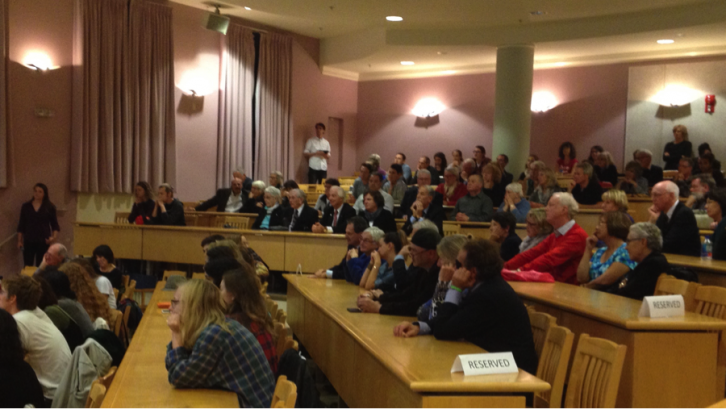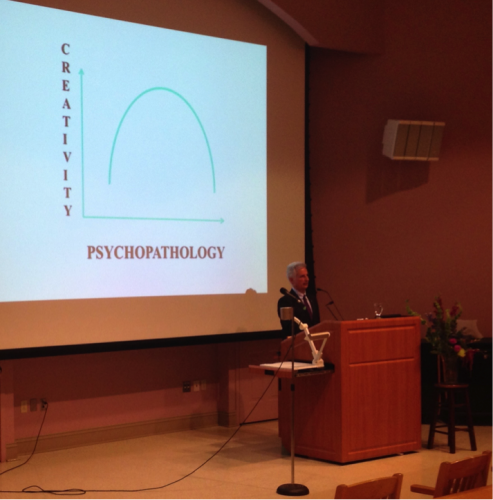Creativity
Complex link between creativity and mental illness, expert says
Dr. David Goldbloom told an audience at King’s that the two attributes appear to have an association, but we are still trying to understand it

caption
[media-credit id=10 align=”alignnone” width=”726″] [/media-credit]
[/media-credit]
There is a link between creativity and mental illness — but researchers are still trying to find out what it is, a leading academic expert on mental health says.
A lot of creative individuals have been affected by mental illness, Dr. David Goldbloom told an audience at the University of King’s College for the Creativity and Mental Health Lecture. As well, he said, there are higher rates of mood disorders in artists compared to regular individuals.
Goldbloom was the speaker at the Creativity and Mental Health Lecture at the University of King’s College on Thursday night. The Shaar Shalon Synagogue presented the lecture in memorial of Saul Green. The lecture was the sixth annual Saul Green Memorial Lecture, around 300 community members attended. Related stories
Goldbloom has authored numerous scientific articles; he maintains an active clinical teaching role in the center for addiction and mental health where he serves as a senior medical advisor.
In addition to his professional activities, Goldbloom is involved in the board of governors of the Stratford Shakespeare Festival in Canada.
Goldbloom said there is no one-way to define creativity.
[media-credit id=10 align=”alignright” width=”493″] [/media-credit]
[/media-credit]
It’s generally seen as “the capacity to see something that other people can’t,” he said.
Creativity has to be original, it has to be useful and there has to be a product in it because you have to be able to show it Goldbloom told the audience.
“Looking at people’s career – this is a limited definition of creativity because every job has their own creativity,” he said.
Creative individuals tend to be invisible – they look like they are out of space sometimes because instead of being involved in something they are observing, stated Goldbloom.
However, being creative doesn’t mean you have to suffer from a mental illness, he said.
“Most people who are creative do not have a mental illness and people with mental illness [are not] necessarily …creative. We should not get these two things confused,” said Goldbloom.
The relationship between mental illness and creativity seems to be complex, he said.
“Studies have been completed with artists that have mental illnesses (depression and bipolar) could not be creative when they were experiencing their symptoms. When they were depressed, they could not be creative,” said Goldbloom.
“As the symptom of mental illness rises, the creativity goes down,” said Goldbloom.
An audience member asked about medications and how they can affect a person’s creativity – especially people with ADD or ADHD.
“There are people who do well on stimulates, and there are people where it just doesn’t work for them,” said Goldbloom. “If it works, the medication generally makes them feel more relaxed.”
However, some people living with ADD or ADHD do not like being on medications because they miss the buzz. They miss having thoughts running across their mind, he said,
“There is more talk about mental health and how to help people when they are going through a difficult time,” said Goldbloom.
For someone with mental illness, their first step should be to get guidance: guidebooks and self-care books.
Overall, he suggests children who are experiencing symptoms of mental illness to be treated right away. This will be easier in the long term, and the child will probably have a normal and healthier life.

